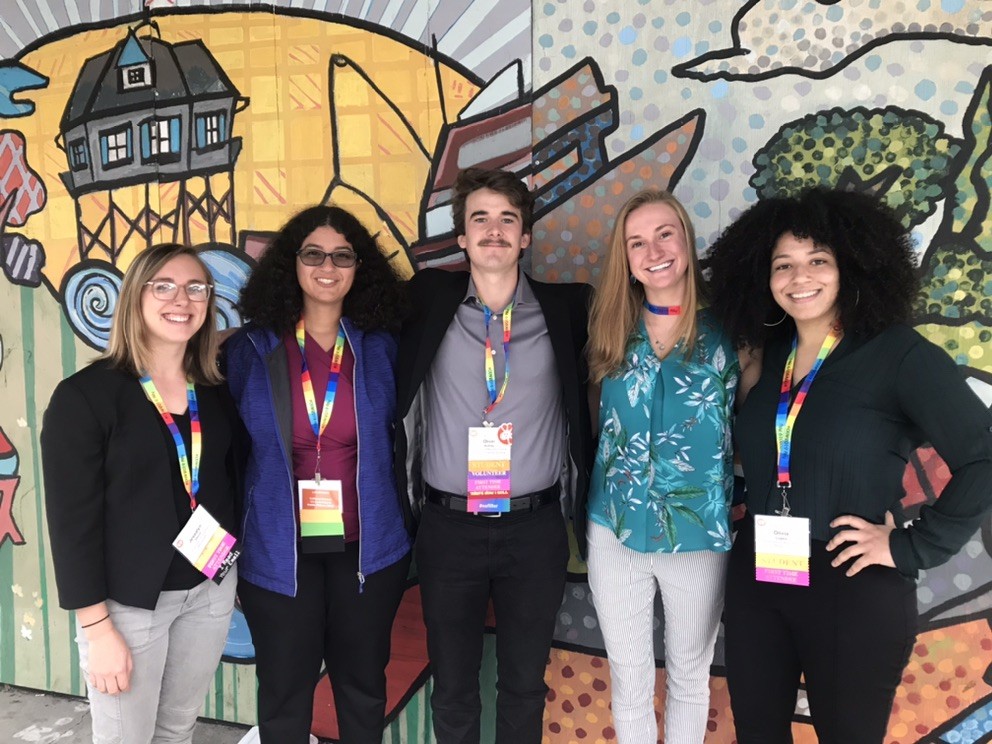Eight students will be presenting the summer work at the Ocean Sciences Meeting in March 2022!
Luca Cherubini, Loyola University Chicago
Class Year:
2019Mentor:
Clara Fuchsman, Ph.D.Project Title:
An Analysis of Protist Diversity in Oxygen Deficient Zones: Understanding the Relationship Between Prochlorococcus and GrazingAbstract:
The cyanobacteria Prochlorococcus is an integral part of oxygen deficient zone (ODZ) microbial ecology. In the Eastern Tropical North Pacific, Prochlorococcus displays two maxima, with one in the ODZ at ~100 meters (Low-Light IV ecotype (LLIV)). LLIV Prochlorococcus reproduces slowly, making populations vulnerable to grazing. Previous non-quantitative studies indicate that heterotrophic protists are in the ODZ. We investigated if ODZ LLIV Prochlorococcus are subject to heterotrophy from microbial eukaryotes. The two prevailing hypotheses predict that: (A) only symbiont-bearing mixotrophic protists, which consume fewer prey due to autotrophy, would be present at the second Prochlorococcus maximum, or (B) heterotrophic and mixotrophic protist populations would decrease along the oxycline, reducing grazing pressure on LLIV Prochlorococcus. We used 18S rDNA long amplicon sequences (1500 basepairs) to identify the protist community and create a phylogenetic tree. Metagenomic reads were placed on the phylogenetic tree. Results identified that both heterotrophic and mixotrophic protists were present at the second Prochlorococcus maximum, specifically high concentrations of the mixotrophic Radiolarian order, Spumellaria along with lower concentrations of heterotrophic Dinoflagellate orders: Prorocentrales and Gymnodiniales. However, nearly all protist population concentrations decreased dramatically near the lower bounds of the oxycline where LLIV Prochlorococcus is present, potentially signifying reduced grazing pressures.
Location:
Horn Point LaboratoryREU Update
Laboratory Technician with 3MPublications:
Fuchsman, C.A., L. Cherubini*, M.D. Hays. 2022. An analysis of protists in Pacific oxygen deficient zones: implications for Prochlorococcus and N2-producing bacteria. Applied Microbiology International 24: 1790-1804, https://doi.org/10.1111/1462-2920.15893.
Presentations:
Cherubini, L.*, M. Hays, and C.A. Fuchsman. 2020. An Analysis of Protist Diversity in Oxygen Deficient Zones: Understanding the Relationship between Prochloroccocus and Grazing. Ocean Sciences Meeting, San Diego, CA.



